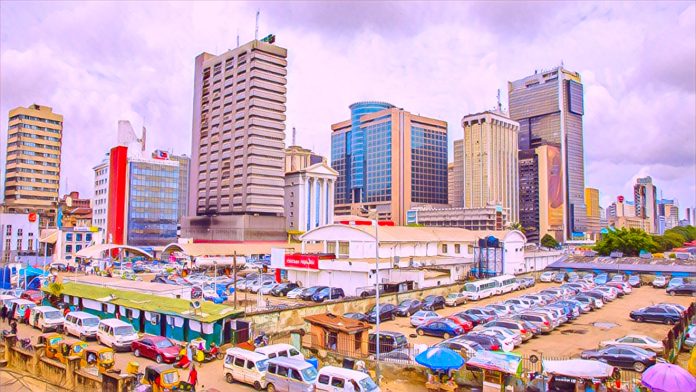KEY POINTS
-
Lagos, Abuja, Port Harcourt, Uyo, and Jos are the top five Nigerian cities facing the fastest rising cost of living in 2025.
-
Key factors include inflation, rising rent, fuel scarcity, poor infrastructure, and insecurity-driven supply chain disruptions.
-
Economists warn that structural reforms—not just monetary policy—are needed to stabilize urban living conditions.
As the economic realities of 2025 unfold, millions of Nigerians are grappling with the sharp rise in the cost of living across major cities.
While inflation is a nationwide concern, some urban centres have seen a particularly steep climb in expenses related to food, housing, transportation, healthcare, and education.
Recent data compiled by the Nigerian Bureau of Statistics (NBS), coupled with independent surveys by market analysts, reveal five cities at the forefront of this affordability crisis: Lagos, Abuja, Port Harcourt, Uyo, and Jos.
The findings, released in early May 2025, underscore a broader pattern of urban economic pressure, fueled by surging fuel prices, insecurity-driven food scarcity, depreciating naira value, and infrastructural strain. For many residents in these cities, the rising cost of daily survival is becoming untenable.
Economic pressures deepen in urban centers as cost of living bites
Topping the list is Lagos, Nigeria’s commercial capital, where the average household now spends over 70 percent of its monthly income on basic necessities. Rents have spiked by more than 30 percent in key districts such as Lekki, Yaba, and Ikeja. A two-bedroom apartment in mid-tier areas now commands as much as ₦1.2 million annually, while food prices continue to soar.
“We can’t keep up,” said Chuka Nwosu, a primary school teacher in Lagos Mainland. “My salary has not changed, but the cost of garri and rice has doubled. Even public transportation is eating deep into my savings.”
Second on the list is Abuja, the Federal Capital Territory, where the rising cost of utilities, especially electricity and water, has burdened both middle and lower-income residents. Many housing estates have introduced service charges as high as ₦50,000 monthly. Transport costs have also risen following the partial removal of fuel subsidies and limited urban mass transit options.
“Even with a government job, you feel the heat here,” said Hadiza Umar, a civil servant in Garki. “School fees, transport, electricity—all increasing at once. It’s a squeeze on the middle class.”
In Port Harcourt, the oil-rich city has not escaped economic challenges despite its resource wealth. Security concerns and oil facility disruptions have made living costs unpredictable. The cost of cooking gas has risen by 45 percent in the last six months alone.
“We live in an oil-producing region, yet we pay the most for gas and fuel,” lamented Ifeanyi Obong, a trader at Mile 1 Market. “We can’t understand the logic.”
Smaller cities not spared as urbanization and inflation collide
Surprisingly, Uyo, the capital of Akwa Ibom State, has seen one of the fastest upticks in cost-of-living indices, particularly in housing and healthcare. The city’s growing urbanization and the influx of civil servants and business interests have driven demand—and prices—up. Hospital fees have climbed as public facilities remain under-resourced and private clinics increase consultation charges.
Similarly, Jos, often considered more affordable, has recorded dramatic increases in food and transport costs due to worsening road networks and supply chain disruptions from insecurity in nearby regions. The price of tomatoes, potatoes, and grains has nearly doubled in the first quarter of 2025.
“Food used to be cheap here,” said Rhoda Pam, a caterer. “Now even a basket of tomatoes is out of reach. We’re losing customers because we have to increase our prices.”
Economists warn that without urgent interventions in agricultural production, transportation infrastructure, and wage policy, the inflation trend could deepen, particularly in cities that are economic magnets or experiencing internal migration.
The Central Bank of Nigeria (CBN) has maintained high interest rates in a bid to curb inflation, but critics argue that monetary tools alone cannot stabilize the economy.
“We need a coordinated policy framework that addresses both supply and demand sides of the economy,” said Dr. Efe Odion, a financial analyst in Abuja. “Inflation can’t be solved through interest rate tightening alone when structural challenges are overwhelming.”
While efforts such as targeted cash transfers and food distribution initiatives have been introduced, many residents believe these interventions remain too limited in reach and impact.
As Nigeria continues to urbanize rapidly, experts stress that improving infrastructure, supporting food supply chains, and expanding affordable housing must become top priorities for both state and federal governments in the years ahead.



